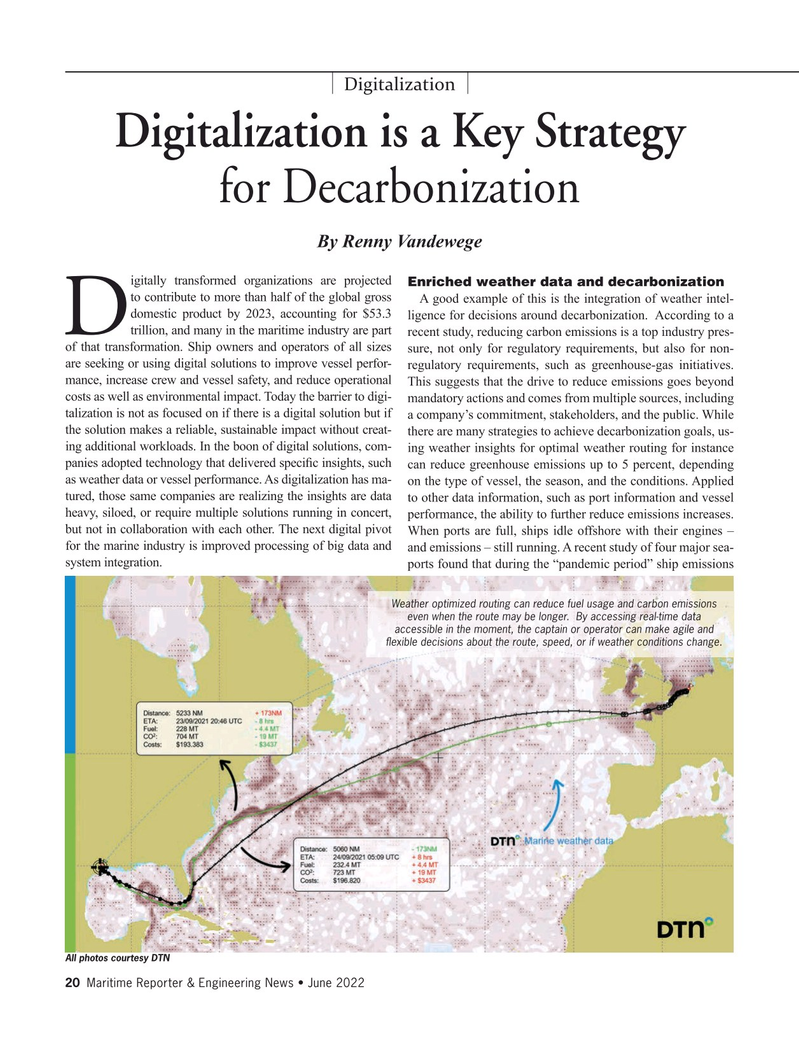
Page 20: of Maritime Reporter Magazine (June 2022)
USCG Fleet Modernization Annual
Read this page in Pdf, Flash or Html5 edition of June 2022 Maritime Reporter Magazine
Digitalization
Digitalization is a Key Strategy for Decarbonization
By Renny Vandewege igitally transformed organizations are projected Enriched weather data and decarbonization to contribute to more than half of the global gross
A good example of this is the integration of weather intel- domestic product by 2023, accounting for $53.3 ligence for decisions around decarbonization. According to a
Dtrillion, and many in the maritime industry are part recent study, reducing carbon emissions is a top industry pres- of that transformation. Ship owners and operators of all sizes sure, not only for regulatory requirements, but also for non- are seeking or using digital solutions to improve vessel perfor- regulatory requirements, such as greenhouse-gas initiatives. mance, increase crew and vessel safety, and reduce operational This suggests that the drive to reduce emissions goes beyond costs as well as environmental impact. Today the barrier to digi- mandatory actions and comes from multiple sources, including talization is not as focused on if there is a digital solution but if a company’s commitment, stakeholders, and the public. While the solution makes a reliable, sustainable impact without creat- there are many strategies to achieve decarbonization goals, us- ing additional workloads. In the boon of digital solutions, com- ing weather insights for optimal weather routing for instance panies adopted technology that delivered speci? c insights, such can reduce greenhouse emissions up to 5 percent, depending as weather data or vessel performance. As digitalization has ma- on the type of vessel, the season, and the conditions. Applied tured, those same companies are realizing the insights are data to other data information, such as port information and vessel heavy, siloed, or require multiple solutions running in concert, performance, the ability to further reduce emissions increases. but not in collaboration with each other. The next digital pivot When ports are full, ships idle offshore with their engines – for the marine industry is improved processing of big data and and emissions – still running. A recent study of four major sea- system integration.
ports found that during the “pandemic period” ship emissions
Weather optimized routing can reduce fuel usage and carbon emissions even when the route may be longer. By accessing real-time data accessible in the moment, the captain or operator can make agile and ? exible decisions about the route, speed, or if weather conditions change.
All photos courtesy DTN 20 Maritime Reporter & Engineering News • June 2022
MR #6 (18-33).indd 20 6/6/2022 10:04:50 AM

 19
19

 21
21
